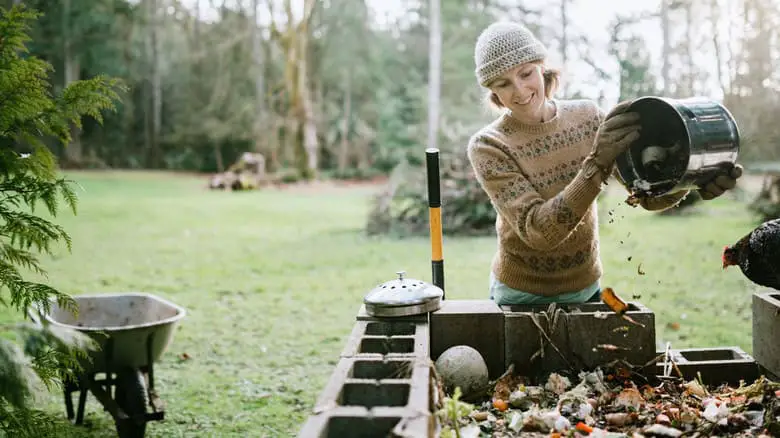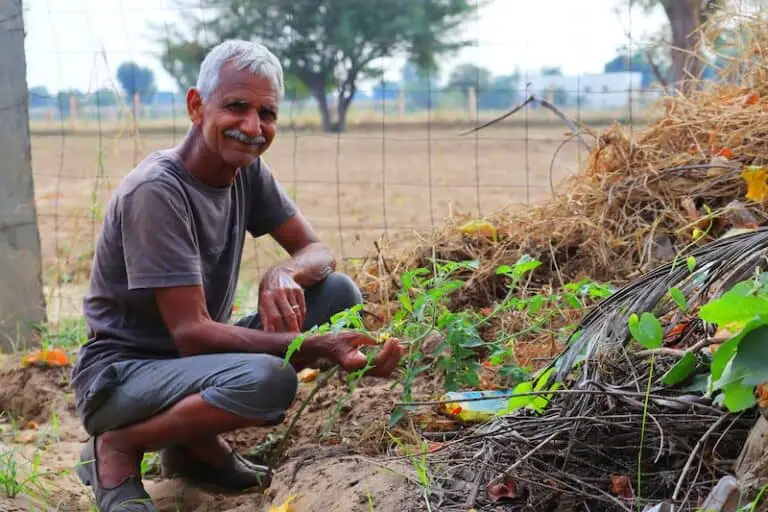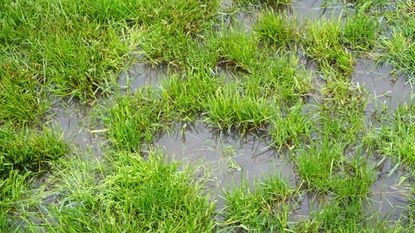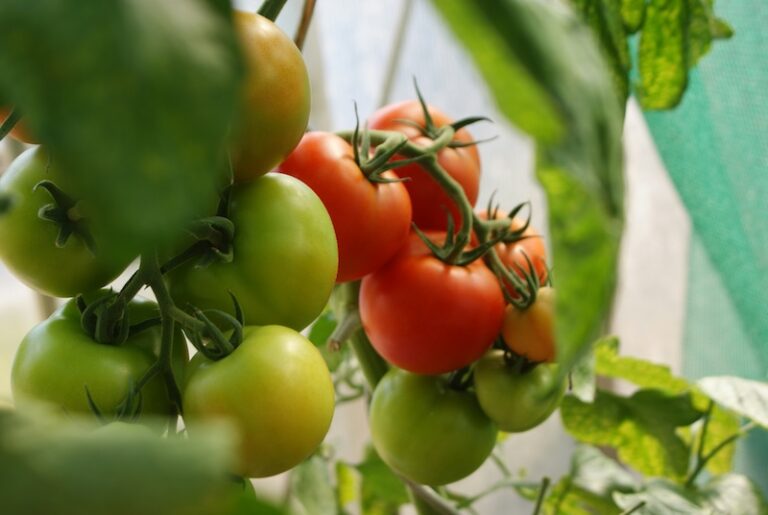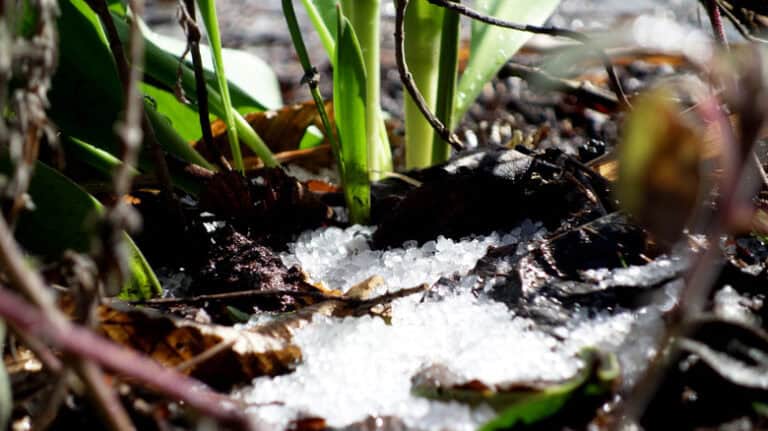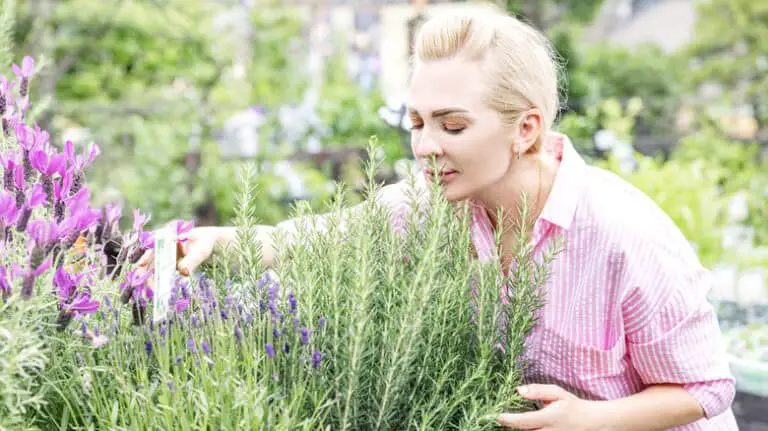Common Ingredient You Should Start Adding To Your Compost Pile: Boost Your Garden’s Health
Eggshells are a common ingredient you should start adding to your compost pile. They enrich the soil with calcium.
Composting is a fantastic way to recycle kitchen scraps and yard waste. Adding eggshells to your compost pile can significantly enhance its nutrient profile. Eggshells are rich in calcium, which helps strengthen the cell walls of plants. They also help balance the pH levels of your compost, making it more suitable for a variety of plants.
Crushed eggshells decompose faster, ensuring that the nutrients are quickly available to your garden soil. Collect your eggshells in a container and crush them before adding them to the compost pile. This simple addition can make a big difference in the health of your garden.
Introduction To Composting
Composting is a way to turn food scraps and yard waste into valuable soil. It helps reduce waste and gives nutrients back to the earth. Many people are now starting to compost at home.
Benefits Of Composting
Composting has many benefits for your garden and the environment.
- Reduces Waste: Less trash goes to landfills.
- Enriches Soil: Adds nutrients to your garden soil.
- Saves Money: Less need to buy fertilizers.
- Reduces Emissions: Lowers greenhouse gases from waste.
How Composting Works
Composting works by breaking down organic materials. Microorganisms like bacteria and fungi help in this process.
- Collect Materials: Gather food scraps, leaves, and grass clippings.
- Layer the Materials: Add layers of greens and browns.
- Maintain the Pile: Turn the pile to add air.
- Wait: Let the materials break down over time.
Common Ingredients For Composting
Some common ingredients you can add to your compost pile include:
| Green Materials | Brown Materials |
|---|---|
| Fruit scraps | Dry leaves |
| Vegetable scraps | Cardboard |
| Grass clippings | Newspaper |
| Coffee grounds | Wood chips |
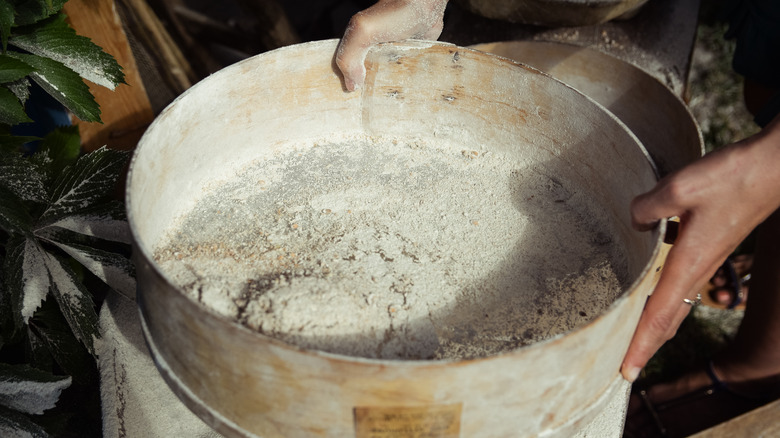
Credit: www.housedigest.com
Essential Compost Ingredients
Creating a nutrient-rich compost pile requires the right balance of ingredients. Knowing what to add can make the difference between a thriving compost and a smelly mess. Here, we’ll explore the essential compost ingredients.
Green Materials
Green materials are rich in nitrogen. They help to heat up the compost pile, speeding up the decomposition process. Common green materials include:
- Fruit and Vegetable Scraps – Apple cores, banana peels, and carrot tops.
- Coffee Grounds – Adds nitrogen and attracts worms.
- Grass Clippings – Ensure they are pesticide-free.
- Eggshells – Crushed to speed up decomposition.
- Manure – From herbivores like cows, horses, and rabbits.
Brown Materials
Brown materials are rich in carbon. They provide energy for microorganisms and help to aerate the pile. Common brown materials include:
- Dry Leaves – Shred for faster decomposition.
- Wood Chips – Adds structure to the pile.
- Cardboard – Tear into small pieces.
- Straw or Hay – Great for layering.
- Paper – Avoid glossy or colored paper.
To achieve the best results, aim for a balanced mix of green and brown materials. Your compost pile will thrive, breaking down into rich, dark humus to nourish your garden.
The Power Of Coffee Grounds
Do you enjoy a cup of coffee every morning? Don’t throw away those coffee grounds! They are a powerful addition to your compost pile. Coffee grounds can transform your compost into a nutrient-rich powerhouse. They are easy to use and packed with benefits.
Nutrient Benefits
Coffee grounds are rich in essential nutrients. They contain nitrogen, which is vital for plant growth. They also have magnesium and potassium, which help plants stay healthy. These nutrients make your soil fertile and strong.
Here’s a quick look at the nutrients in coffee grounds:
| Nutrient | Benefit |
|---|---|
| Nitrogen | Promotes leafy growth |
| Magnesium | Enhances photosynthesis |
| Potassium | Strengthens plant stems |
How To Add Coffee Grounds
Adding coffee grounds to your compost is simple. Follow these steps to get started:
- Save your used coffee grounds in a container.
- Spread the coffee grounds over your compost pile.
- Mix the grounds into the compost with a shovel.
- Ensure the compost remains moist but not soggy.
Use coffee grounds in moderation. Too much can make the compost too acidic. Aim for a balance by mixing with other compost materials.
Here are some tips for using coffee grounds:
- Use both fresh and used coffee grounds.
- Combine with other green compost materials like fruit peels.
- Mix well to prevent clumping.
Your compost pile will thrive with the addition of coffee grounds. It is an easy and eco-friendly way to recycle your coffee waste. Happy composting!
Eggshells For Calcium Boost
Adding eggshells to your compost pile is an easy and effective way to boost its calcium content. Calcium is essential for healthy plant growth. Eggshells are a natural and sustainable source of this vital nutrient.
Why Eggshells?
Eggshells are rich in calcium carbonate. This is the primary ingredient in agricultural lime, which farmers use to reduce soil acidity. By adding eggshells to your compost, you can help balance the pH of your soil, making it more suitable for plant growth.
Eggshells also help improve soil structure. They break down slowly, allowing the calcium to release gradually. This slow release is beneficial for plants, as it ensures a steady supply of calcium over time.
Preparing Eggshells
Before adding eggshells to your compost, it’s important to prepare them properly. Follow these simple steps:
- Rinse the eggshells to remove any remaining egg white or yolk.
- Dry the eggshells thoroughly. You can air dry them or use an oven at low heat.
- Crush the dried eggshells into small pieces. This speeds up the decomposition process.
Once prepared, you can add the crushed eggshells to your compost pile. Mix them in well to ensure even distribution. Over time, the eggshells will break down and release calcium into the compost.
Here’s a quick table summarizing the benefits and preparation of eggshells:
| Benefit | Preparation Step |
|---|---|
| Improves soil structure | Rinse |
| Balances soil pH | Dry |
| Steady calcium release | Crush |
Incorporating eggshells into your compost is a simple and effective way to enhance its quality. Your plants will thank you for the extra calcium boost!
Banana Peels For Potassium
Banana peels are a great addition to your compost pile. These peels are rich in potassium, which is essential for plant growth. By adding banana peels, you can boost the nutrient content of your compost.
Nutritional Value
Banana peels contain many nutrients that benefit your garden. They are rich in potassium, which helps plants grow strong. Potassium also aids in water absorption and enzyme activation. Here is a quick look at the nutritional value of banana peels:
| Nutrient | Value |
|---|---|
| Potassium | 42 mg/g |
| Calcium | 19 mg/g |
| Magnesium | 24 mg/g |
Adding Banana Peels
Adding banana peels to your compost is easy. Follow these simple steps:
- Collect your banana peels.
- Cut them into small pieces.
- Add the pieces to your compost pile.
- Mix the compost well.
Make sure to cut the peels into small pieces. This helps them decompose faster. You can also bury the peels directly in the soil. This provides a direct nutrient boost to your plants.
Banana peels are not just waste. They are a valuable resource for your garden. Start adding them to your compost pile today!
:max_bytes(150000):strip_icc()/GettyImages-1173160625-bc8098e51d424eb2ad4b73a44fa21e6f.jpg)
Credit: www.treehugger.com
Using Grass Clippings
Composting is a wonderful way to reduce waste and enrich your garden soil. One common ingredient you should start adding to your compost pile is grass clippings. Using grass clippings in your compost can offer numerous benefits and, when used properly, can help create nutrient-rich compost for your garden.
Benefits Of Grass Clippings
Grass clippings are abundant, especially during mowing season. They are rich in nutrients and decompose quickly, helping to accelerate the composting process.
- High Nitrogen Content: Grass clippings are high in nitrogen, a key nutrient for plant growth.
- Quick Decomposition: They break down fast, providing quick nutrients to your compost.
- Moisture Retention: Grass clippings help retain moisture in the compost pile, aiding the decomposition process.
Proper Usage
To use grass clippings effectively in your compost pile, follow these simple steps:
- Layering: Alternate layers of grass clippings with dry materials like leaves or straw. This balance helps maintain proper airflow and reduces odor.
- Turn Regularly: Turning the compost pile every few weeks helps mix the materials and speeds up decomposition.
- Avoid Thick Layers: Avoid adding thick layers of grass clippings. Thick layers can mat together and block airflow, slowing down decomposition.
Using grass clippings in your compost pile is an easy and effective way to enhance your compost. By understanding the benefits and proper usage, you can create nutrient-rich compost to boost your garden’s health.
Incorporating Fruit Scraps
Adding fruit scraps to your compost pile is a great idea. They are rich in nutrients and break down quickly. Fruit scraps can enhance your compost, making it richer and more fertile. Let’s explore how to make the most out of fruit scraps in your compost.
Types Of Fruit Scraps
Not all fruit scraps are the same. Here are some common types:
- Apple cores: Perfect for adding nitrogen to the compost.
- Banana peels: Great source of potassium and phosphorus.
- Citrus peels: Add in moderation to avoid acidity.
- Melon rinds: Rich in water and help with moisture levels.
- Berry scraps: High in antioxidants and nutrients.
Composting Fruit Scraps
Composting fruit scraps is easy. Follow these steps:
- Chop the fruit scraps: Smaller pieces break down faster.
- Mix with brown materials: Balance with leaves or cardboard.
- Avoid excess citrus: Too much can make your compost too acidic.
- Turn the pile: Ensure aeration and faster decomposition.
Here is a simple table summarizing the benefits of different fruit scraps:
| Fruit Scrap | Benefit |
|---|---|
| Apple cores | High in nitrogen |
| Banana peels | Rich in potassium |
| Citrus peels | Moderate in acidity |
| Melon rinds | High in water |
| Berry scraps | Rich in antioxidants |

Credit: www.msn.com
Maintaining Your Compost Pile
Keeping your compost pile healthy is essential for producing rich, dark compost. Proper maintenance ensures that your compost breaks down quickly and efficiently. This section will cover two crucial aspects: turning the pile and monitoring moisture.
Turning The Pile
Turning the pile is critical for aeration. It helps introduce oxygen, which aids in decomposition. You should turn your compost pile regularly. Aim to do this every 1 to 2 weeks.
- Use a garden fork to lift and turn the materials.
- Ensure all layers are mixed well.
- This process helps speed up composting.
Regular turning also helps to distribute moisture and heat evenly. This ensures all parts of the pile break down at the same rate.
Monitoring Moisture
Monitoring moisture is another key factor in compost maintenance. Your compost pile should feel like a damp sponge. Not too wet and not too dry.
| Moisture Level | Action |
|---|---|
| Too Dry | Add water and mix well. |
| Too Wet | Add dry materials like leaves or straw. |
Use a moisture meter for accurate readings. It helps you keep track of the moisture levels easily.
Regularly checking and adjusting moisture levels ensures your compost pile remains active and healthy.
Frequently Asked Questions
What Should I Add To My Compost?
Add kitchen scraps, yard waste, and shredded newspaper to your compost for a healthy mix of greens and browns.
Can I Compost Eggshells?
Yes, eggshells add calcium to compost. Crush them to speed up decomposition and improve soil structure.
Is Coffee Grounds Good For Compost?
Yes, coffee grounds enrich compost with nitrogen. They also improve soil texture and help attract beneficial worms.
Conclusion
Boost your compost pile with common kitchen scraps and yard waste. These ingredients enrich the soil naturally. Start adding fruit peels, coffee grounds, and grass clippings. Healthy compost leads to a thriving garden. Embrace these simple steps for a greener, more sustainable lifestyle.
Happy composting!

